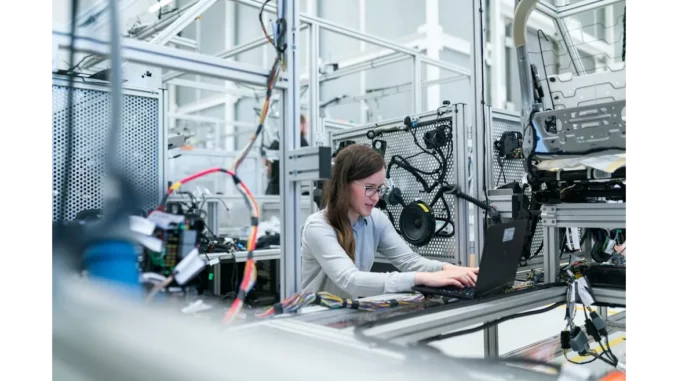
On a typically overcast London afternoon, I found myself engaged in an enlightening discussion with Dr. Eleanor Marsh, a distinguished medical technology analyst. With over twenty years of experience, Dr. Marsh has become a pivotal figure in health policy debates, particularly concerning the burgeoning influence of foreign technology in British healthcare.
Our meeting took place in a tranquil café, where the intimate atmosphere contrasted with the weightiness of our topic: the increasing presence of Chinese medical technology within the United Kingdom’s hospitals. As we settled into our seats, Dr. Marsh wasted no time in addressing the dual nature of this technological influx. “The innovation emerging from China is extraordinary,” she remarked with a mix of admiration and unease. “AI-driven diagnostics and advanced imaging equipment from China have the potential to truly transform patient care.”
Despite her recognition of these advancements, Dr. Marsh articulated a series of well-founded apprehensions. Policymakers, alongside experts in security and biological fields, have raised alarms about the swift integration of Chinese technologies in the UK’s healthcare system. These concerns are complex, involving both security risks and the broader implications for the British medical landscape.
“Data security is a significant issue,” Dr. Marsh asserted, her tone growing more solemn. “Chinese firms are bound by domestic laws that could compel them to share data with their government. This possibility is deeply troubling in the context of healthcare, where patient privacy is paramount.” The fear that sensitive patient information might be accessed by foreign entities is not merely speculative; it is a pressing reality that has caused considerable unease among lawmakers. The complexities of data protection become even more intricate when intertwined with international relations and the technological dependencies of vital sectors like healthcare.
Dr. Marsh elaborated, “Dependency is another critical concern. If we allow our hospitals to become reliant on Chinese technology, we are exposing ourselves to potential vulnerabilities. Should diplomatic relations deteriorate, our healthcare system could be compromised by technology that is beyond our control.” Her apprehensions are shared by many experts who worry about the strategic risks associated with dependence on foreign technology, particularly from nations where political tensions might arise.
Our conversation briefly wandered to lighter topics as we enjoyed our coffee, yet it inevitably returned to the central issue. Dr. Marsh emphasised the necessity for the UK to proceed with caution, weighing the benefits of cutting-edge technology against the imperative of protecting national interests. “Collaboration is essential,” she proposed, advocating for partnerships between British and Chinese firms that are structured to ensure both mutual benefit and security. “We must also invest in developing our own technological capabilities to avoid falling behind in the medical technology arena.”
Striking a balance between technological sovereignty and global innovation is a delicate endeavour. Dr. Marsh underscored the need for robust regulatory frameworks that can keep pace with rapid technological advancements while safeguarding national interests. As our conversation drew to a close, she offered a poignant reflection: “The goal is not to demonise Chinese technology,” she clarified. “It is about making informed decisions that protect our patients, our data, and our national security.”
As I departed the café, I was left with a deeper appreciation for the intricate challenges that policymakers and experts like Dr. Marsh must navigate. The rise of Chinese medical technology in the UK is a complex issue that demands a nuanced approach—one that respects innovation while ensuring security.
In the months and years ahead, as discussions progress and policies are shaped, the insights of individuals such as Dr. Marsh will be invaluable. They remind us that although technology can serve as a potent ally in healthcare, it requires careful consideration and foresight. The path forward will necessitate collaboration, investment, and most importantly, a commitment to safeguarding the interests of both the nation and its citizens.


Be the first to comment